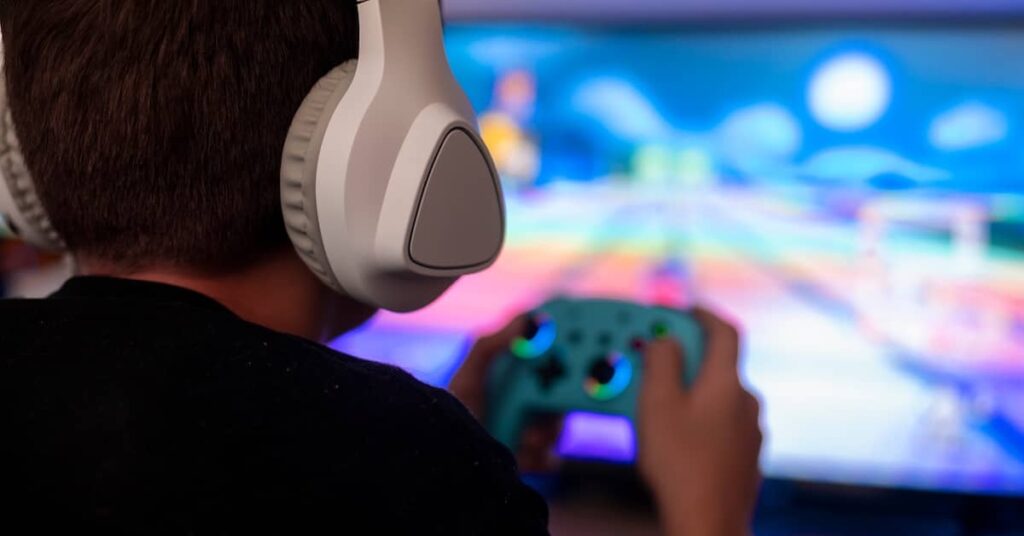
Can I File a Lawsuit for Video Game Addiction?
Parents may be able to bring a video game addiction lawsuit if their child has developed a gaming dependency due to exploitative and manipulative practices by game developers. If you have a child who is under the age of 18 and they are exhibiting symptoms of video game addiction, it is important to understand your legal rights.
Burg Simpson is at the forefront of video game addiction litigation. Our video game addiction lawyers are committed to holding developers and publishers accountable for intentionally creating addictive games.
Parents should not have to shoulder the costs of the decision to put profits ahead of children’s well-being. Call Burg Simpson at 888-895-2080 today for a FREE and confidential case evaluation. We represent clients in video game addiction lawsuits throughout the country from offices in multiple states.
What Is the Basis for the Video Game Addiction Lawsuits?
The companies behind popular titles like Minecraft, Fortnite, and Roblox are facing litigation from parents who claim that these games are intentionally designed to encourage addictive behavior among players. Children and teenagers are especially at risk.
Plaintiffs have cited a number of predatory features that drive gaming addiction. These include daily rewards for signing into the game, loot boxes (randomized digital prize packs), and microtransactions (small in-app purchases made with real money).
Common arguments in a video game addiction lawsuit include:
- Video game developers and publishers conducted research to make their games as addictive as possible by maximizing the release of dopamine while playing.
- Dopamine is a neurotransmitter that provides a pleasurable sensation when performing tasks. The brain can become dependent on the release of dopamine, resulting in addictive or compulsive behaviors.
- These companies failed to warn consumers about the potential for gaming addiction.
- Gameplay is designed to exert psychological pressure to drive engagement and maximize spending.
- Companies engaged in predatory marketing of addictive video games to minors.
- Monetization schemes simulate gambling and can lead to addiction in vulnerable populations (such as children).
Last year, the video game industry generated an estimated $455 billion in global revenue. Sadly, a significant portion of these profits appears to come from business practices that prey upon minors.
A skilled product liability attorney can help you bring legal action against video game companies for the harm done to your child. Your lawyer can discuss the available options and help you pursue the compensation you deserve.
What Qualifies as a Gaming Addiction?
Gaming addiction (officially termed Internet Gaming Disorder in the Fifth Edition of the Diagnostic and Statistical Manual of Mental Disorders (DSM-5) and also known as video game addiction) is characterized by a preoccupation with gaming that interferes with daily life. It encompasses problem behaviors associated with console and PC games, online games, and mobile games.
Individuals of any age can develop a video game addiction, but adolescents are most susceptible. Worldwide, an estimated 8.5% of people under 18 may be addicted to video games. The symptoms of gaming addiction may include:
- Excessive time spent playing video games
- Fixation on video games (i.e., thinking about gaming all the time)
- Depression, anxiety, irritability, and other symptoms of withdrawal when not gaming
- Tolerance (i.e., requiring more and more time playing to get satisfaction from gaming)
- Finding it hard to stop gaming
- Loss of interest in other activities
- Neglecting family and social relationships
- Being secretive about gaming and trying to hide the problem from others
- Turning to video games for relief from negative emotions
- Aggressive thoughts and actions
How Many Hours of Gaming Is Considered an Addiction?
Excessive gaming is generally defined as playing video games at least 5 days per week and for 4 hours or more each day. Someone who plays video games for 20+ hours weekly may be considered to have an addiction to gaming.
This is not a hard-and-fast rule for diagnosing addiction. Mental health professionals consider both the number of hours spent playing video games as well as the psychological and behavioral issues.
As a parent, you need to be aware of the signs of video game addiction in children.
What Are the Consequences of Gaming Addiction?
Video game addiction in children has been linked to a number of psychological issues:
- Anxiety disorders
- Depression
- Sleep disruptions
- Attention Deficit Hyperactivity Disorder (ADHD)
- Oppositional Defiant Disorder (ODD)
- Emotional outbursts and anger issues (sometimes called “gamer rage”)
Children who are addicted to video games are also at risk for physical problems. For example, the sedentary lifestyle associated with gaming increases the risk of obesity in children. Childhood obesity is a risk factor for multiple health issues later in life, including high blood pressure, heart disease, and diabetes.
Another concern with childhood video game addiction is the impact on cognitive function. Gaming disorders have an adverse impact on concentration and memory, which can result in diminished academic performance and developmental delays.
Setting limits on screen time is key for reducing the potential for video game addiction. If you believe your child has a problem with video games, talking to them about their gaming habits is a good first step. They may also benefit from speaking with a therapist who specializes in video game addiction.
Do You Qualify for the Video Game Lawsuit?
At present, each video game addiction lawsuit is proceeding on an individual basis. No class action has been certified, and a motion to consolidate pending cases into multi-district litigation was denied by the courts in June 2024.
You may have a viable claim if your child has developed an addiction to video games or Internet Gaming Disorder. The evidence you will need to establish your right to compensation includes:
- Game information, including usernames, accounts, and in-game logs showing the number of hours played
- Medical records, including mental health assessments, therapy session notes, medications, etc.
- Bills and receipts showing the financial loss from microtransactions, loot boxes, etc.
- Testimony from family members about the child’s change in behavior
- Report cards and notes from teachers showing a decline in schoolwork and behavioral issues
- Expert witness testimony as to the physical, mental, and/or financial effects of video game addiction
Knowledgeable experts in video game design and marketing are also required for these cases. Their testimony can help to prove the existence of manipulative or exploitative elements in the game(s) your child played, which can bolster arguments that these video games are designed to be addictive.
Learn how Burg Simpson can help. Contact us for FREE today.
Compensation for Video Game Addiction
Litigation surrounding video game dependency is in its early stages. It remains to be seen what damages may be available for families whose children are struggling from the effects of addiction.
Damages you may be able to recover in a video game addiction lawsuit include:
- The cost of medical care for your child, including therapy and counseling, prescription medications, and other treatment
- Future medical expenses
- Reimbursement of added educational expenses, such as tutoring and homeschooling
- Emotional anguish
- Pain and suffering
- Financial loss from microtransactions, loot boxes, and other “pay-to-win” features
- Loss of society and companionship between the child and parents, the child and siblings, etc.
The best way to determine the value of your claim is to speak with a qualified lawyer. Attorneys who are well-versed in product liability claims can discuss the legal avenues available to you and your family and how much your case may be worth.
Get Help with Your Video Game Addiction Lawsuit
Holding large corporations responsible for wrongdoing is a daunting task. When their children are harmed, however, most parents will go to the ends of the earth to set things right.
Video games should be a fun pastime, not a doorway to addiction, emotional distress, and simulated gambling. Burg Simpson is committed to representing parents in video game addiction claims and seeking maximum compensation on their behalf.
For more than 45 years, we have been recognized as a leading mass tort litigation law firm. We have represented numerous plaintiffs at the state and federal level, obtaining more than $2 billion in settlements and trial awards.
Contact Burg Simpson Today
Are you the parent of a minor child (under 18) who is addicted to gaming? You are not alone, and Burg Simpson is here to help. We can file a video game addiction lawsuit and seek maximum compensation on your behalf.
Legal guidance is available nationwide. Call 888-895-2080 to speak with a team member at Burg Simpson. Your initial consultation is FREE, you pay nothing upfront, and you only have to pay fees if we win your case.



